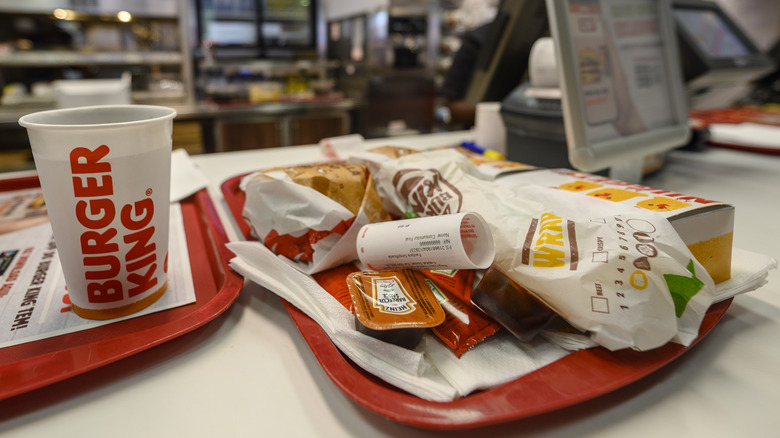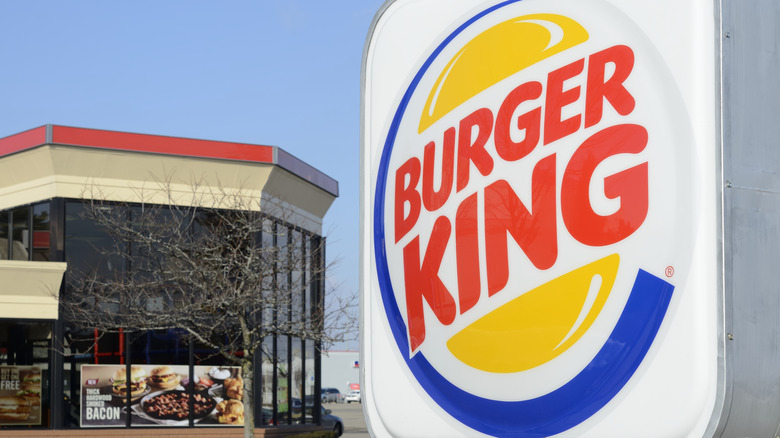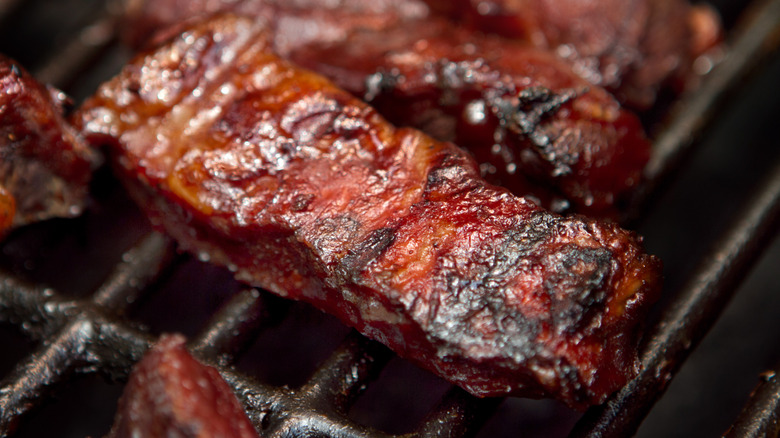Why Burger King's Ribs Meal Was Actually Discontinued
The year is 2010. Fast food wars are mainstream, with ongoing competition in the world of burgers and chicken sandwiches. Mcdonald's holds a solid spot in the pork market, having found the inspiration to create the ever-popular McRib 29 years earlier. Then, an unexpected thing happened — Burger King released a limited run of a new product, and it was wildly popular. So what happened to the breakout BK Fire-Grilled Ribs meal, and why don't we see it on the menu today?
The answer is a combination of poor planning, supply chain issues, and a failure to have a clear vision for the potential success of the product. In short, BK didn't know its newest menu item would be so popular, and it ran out of meat even before the limited run was over. With its coupled success and failure, Burger King simultaneously earned kudos for taking a chance and left the media stunned by its inability to maintain its momentum. It also became a corporate example that would make a strong candidate for review in every marketing and economics class.
The wild success of BK's Fire-Grilled Ribs
To promote the ribs meal, news was shared via radio and TV commercials, enticing customers to try the new offering. In restaurants, advertising posters popped up in the windows. Marketing on social media was in its youth. In a variety of ways, word got out. And customers flooded in. While food bloggers hurried in to curate their opinion of the pork ribs, the general public apparently didn't wait for reviews before lining up.
The plan was for a very limited-time run of ribs. However, within a short window of launching, Burger King started to identify its own shortcomings in anticipating the product's success. John Schaufelberger, BK's senior vice president of global product marketing and innovation, told Time Magazine, "We began to run out of the packaging for the larger portions within the first few weeks." The problems continued as BK ran short on product, too. Before it could get to the finish line, Burger King announced it was running out of the 10 million ribs they had on hand for the event. In the end, it had to pull the ads and dial back on all marketing as customers finished off the last of the stock a week before the promotion was set to end. This was only one of many fast food items that caused a lot of controversy, but in this case, it was less about questionable ingredients and more about shocking demand.
Taking stock of its success ... and failure
The head-spinning release and wrap-up of the Burger King ribs in the spring of 2010 opens the door to scrutiny. How could a mammoth like BK not anticipate the potential need for more product? Obviously, it's hammered out how to keep beef patties and potatoes in the supply chain, so maintaining inventory is not a new concept. Perhaps it got a one-time deal on pork ribs, or maybe dispensing 10 million ribs within weeks left pork producers grasping at air. Whatever the cause, it appears the company was just as surprised as the media with the rocket success.
Similarly, no one really seems to know why the product took off the way it did. Reviews were mixed, with many claiming the price was too high for the small amount of food received. However, others said that when categorized as a quick substitute for a proper rib experience, the BK rib stepped up to satisfy salty, smoky cravings. This experiment may have been the beginning of something amazing for Burger King, or it may have been a flash in the pan where customers urgently try the newest thing on the menu and then quickly leave it in the rearview mirror. Apparently, we'll never know since, 14 years later, Burger King has yet to put its ribs back on the menu. For now, at least, it looks like ribs have become one of many discontinued Burger King items we'll probably never see again.


